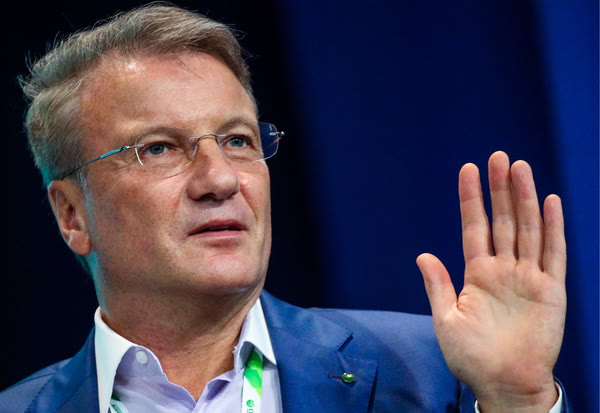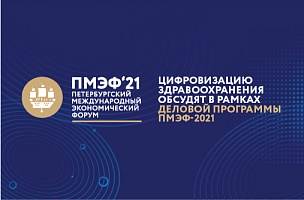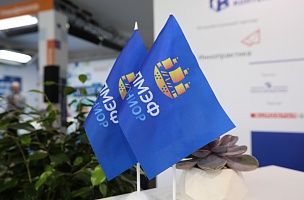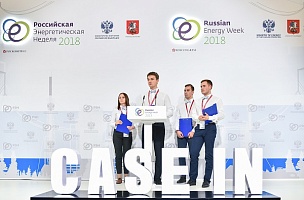The world is entering a new technological order that does not have standards and requirements concerning competences
“We are entering a new technological order that has no standards. We do not understand what are requirements, criteria and competences in this technological world, and we realize that they need to be established,” Marina Borovskaya, Deputy Minister of Science and Higher Education of the Russian Federation.
New order requires different approaches to education
“It is not about the student, rather the way we try to deliver knowledge. How can we deliver it to involve them? This is not that easy, especially for people representing the traditional educational system. We all come from this system. What we have to do now is to redefine ourselves and realize that the educational system that raised us is not perfect. And to work out ways to update it and to think how to create a system that would produce high-quality results on the national scale,” Herman Gref, Chief Executive Officer, Chairman of the Executive Board, Sberbank.
PROBLEMS
Development of false motivation in students
“We have just heard that children, when they go to school, do not quite understand what they need, so they should be forced to learn. But we understand that when they are forced, they lose their cognitive interest, they are given irrelevant and unnecessary things. and after that, going to the university, they are focused on diploma, because they traditionally think that they are more likely to succeed with their careers with diploma rather than without one. But the world is changing, and we know that a number of leading companies have already announced that the diploma will not be among employment criteria,” Valeria Zabolotnaya, Managing Director, School 21.
‘Mass production’ approach to education is still there
“The educational process is unproductive and ineffective. Children are sitting in the same classroom, all of the same age, and all activities are limited to this classroom. This must be changed,” Pyotr Polozhevets, Editor-in-Chief, Uchitelskaya Gazeta (Teachers’ Gazette), an Independent Pedagogical Publication.
“The second thing is this mass production principle: you have to come to a certain place at the certain time and receive a certain amount of knowledge. All people are different, all unique, we learn in different ways, we collect information from the environment differently. And the last thing is this averaged pace. We use this averaged student as a reference and assume what they should learn and when,” Valeria Zabolotnaya, Managing Director, School 21.
Inconsistency of educational quality assessment
“Now everyone is saying that we have to be on the top ten best educational systems in the world, but we have not yet defined what the best educational system is. As for PISA (Programme for International Student Assessment — Ed.), for me this does not define best systems. There should be other assessment tools, and not only for knowledge. Now everything is based on knowledge assessment. Measuring skills and competences is much more difficult,” Pyotr Polozhevets, Editor-in-Chief, Uchitelskaya Gazeta (Teachers’ Gazette), an Independent Pedagogical Publication.
Educational system is not related to the practice
“The big problem is that our educational system is not related to the practice. We teach students, and then for 70% they work in a different sphere,” Herman Gref, Chief Executive Officer, Chairman of the Executive Board, Sberbank.
Educational system forms a dependent personality
“Parents are responsible for where there children go and how they learn. I talk to young people from 18 to 30 years, and I am terrified: 99% of them say that education gave nothing to them. Around 80% of them say that they went to a certain school because that is what their parents told them. Are we ready, as parents, to give our children freedom of choice, seek any alternatives for them, understanding all imperfections of the educational system?” Valeria Zabolotnaya, Managing Director, School 21.
“I guess the paradox is that first we do not let children decide themselves, we choose for them. And the educational system supports this. And then, when they face the need to take responsibility for their decisions on where to go working, they realize that they do not want to do what they were taught. As a result, 2/3 of these graduates choose to change profession and suffer for the rest of their lives. They have lost five years of their most productive time,” Herman Gref, Chief Executive Officer, Chairman of the Executive Board, Sberbank.
SOLUTIONS
Defining the employer’s role in the educational system
“We have forgotten the employer. And the employer is crucial. When I talk to the heads of universities, I ask: ‘Can you tell me what is our role? Who you teach your students for?’ They will come to me anyway, and you do not ask me who I need. You teach them as you can, then they come to me and face the reality: forget everything you have learnt at the university. It should not be like this. The employer’s role should also be defined, because, in the end, all students dream to work for a certain employer or organize their own start up,” Herman Gref, Chief Executive Officer, Chairman of the Executive Board, Sberbank.
“Within the university system we do understand that our partner and client is the business that is expecting young people with certain skills and knowledge that qualify them for the jobs,” Marina Borovskaya, Deputy Minister of Science and Higher Education of the Russian Federation.
Implementing an individual trajectory (personification) of the learning process
“The use of online platforms allows the teacher to work with each student individually. <...> it dramatically reduces the time needed for acquiring knowledge and frees up time for different activities,” Ivan Kolomoyets, Chief Executive Director, Co-Founder, Uchi.ru.
”Children need to have a multioptional way of getting information – from the traditional one to the applied one. What we call project activity should be widely implemented in schools. Today, unfortunately, not every school has it,” Elvira Shamonova, General Director, Khabarovsk Territorial Education Centre.
Creating an independent assessment system
“Schools should have an independent system of assessing children, unrelated to teachers. The teacher cannot immediately assess child’s performance,” Elvira Shamonova, General Director, Khabarovsk Territorial Education Centre.






